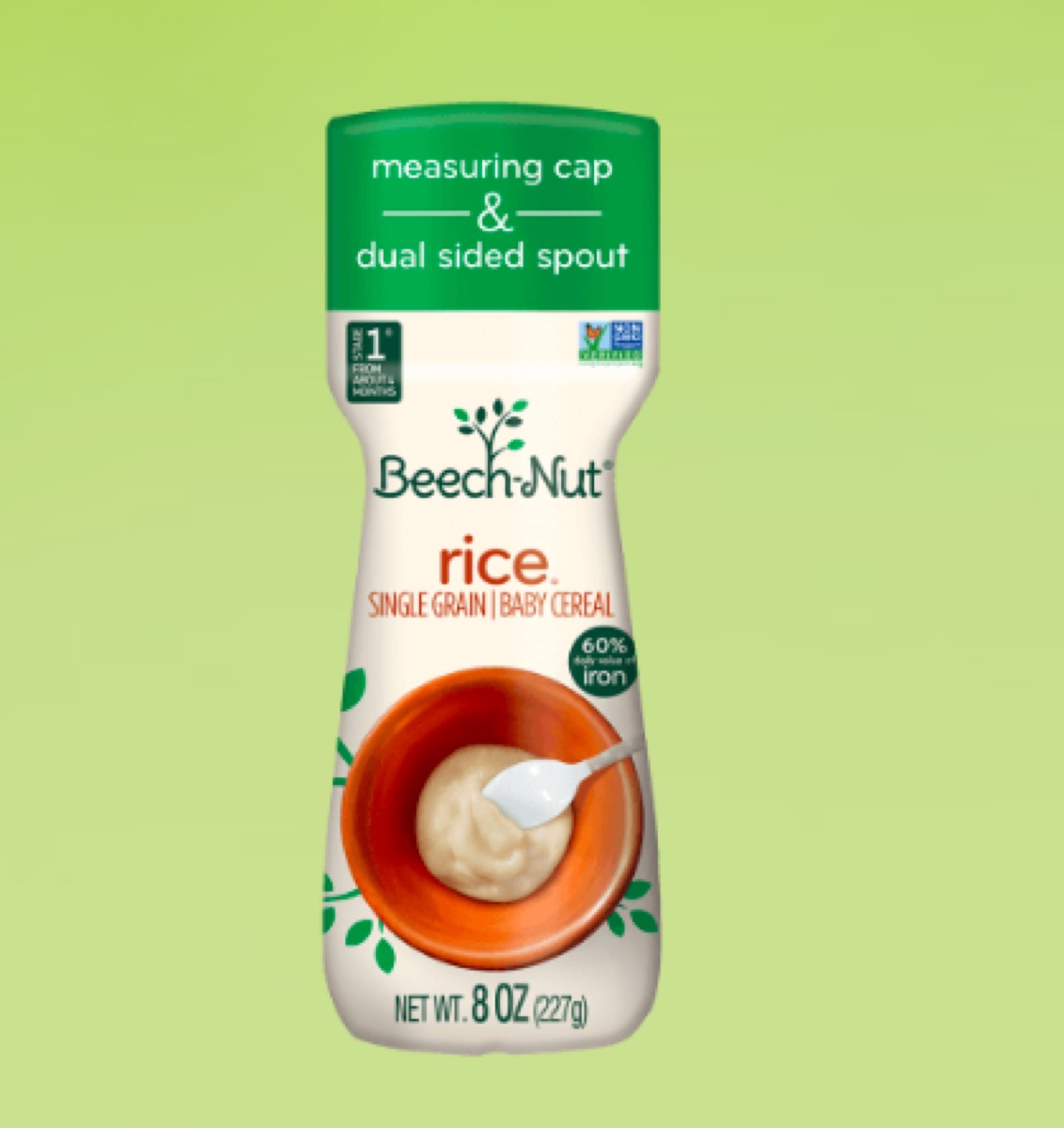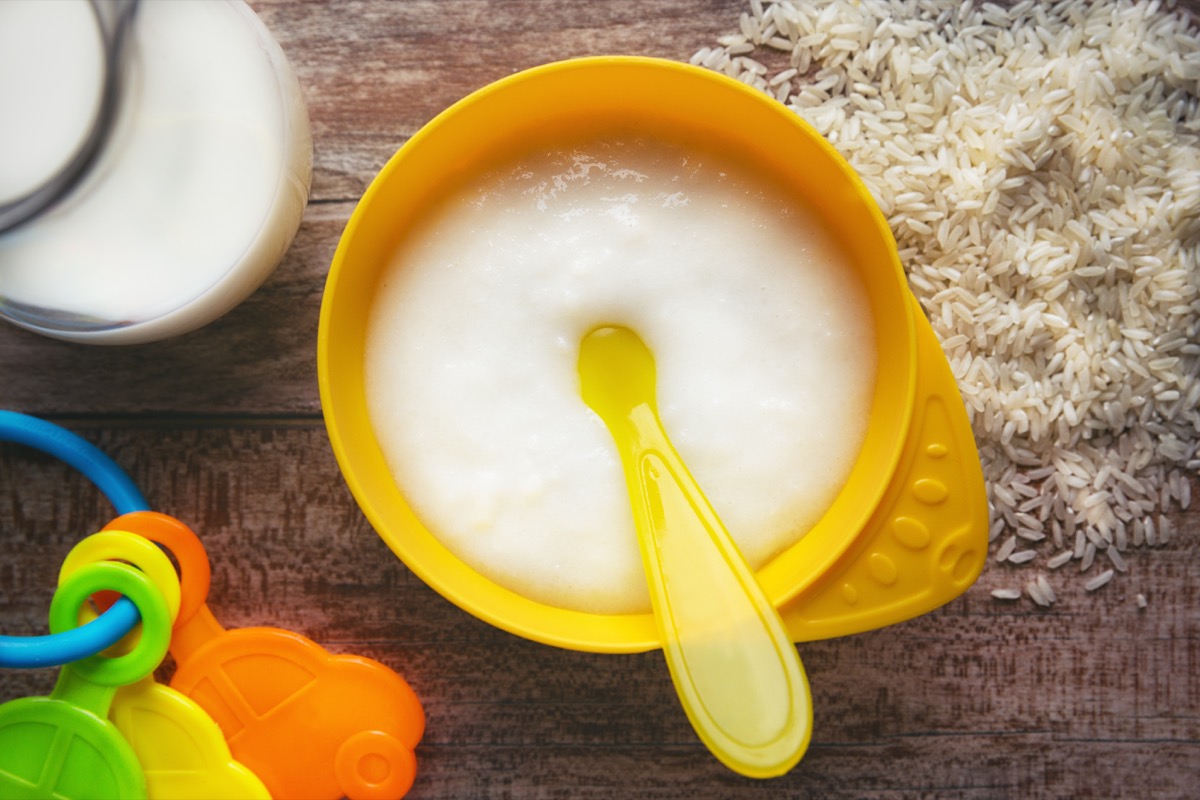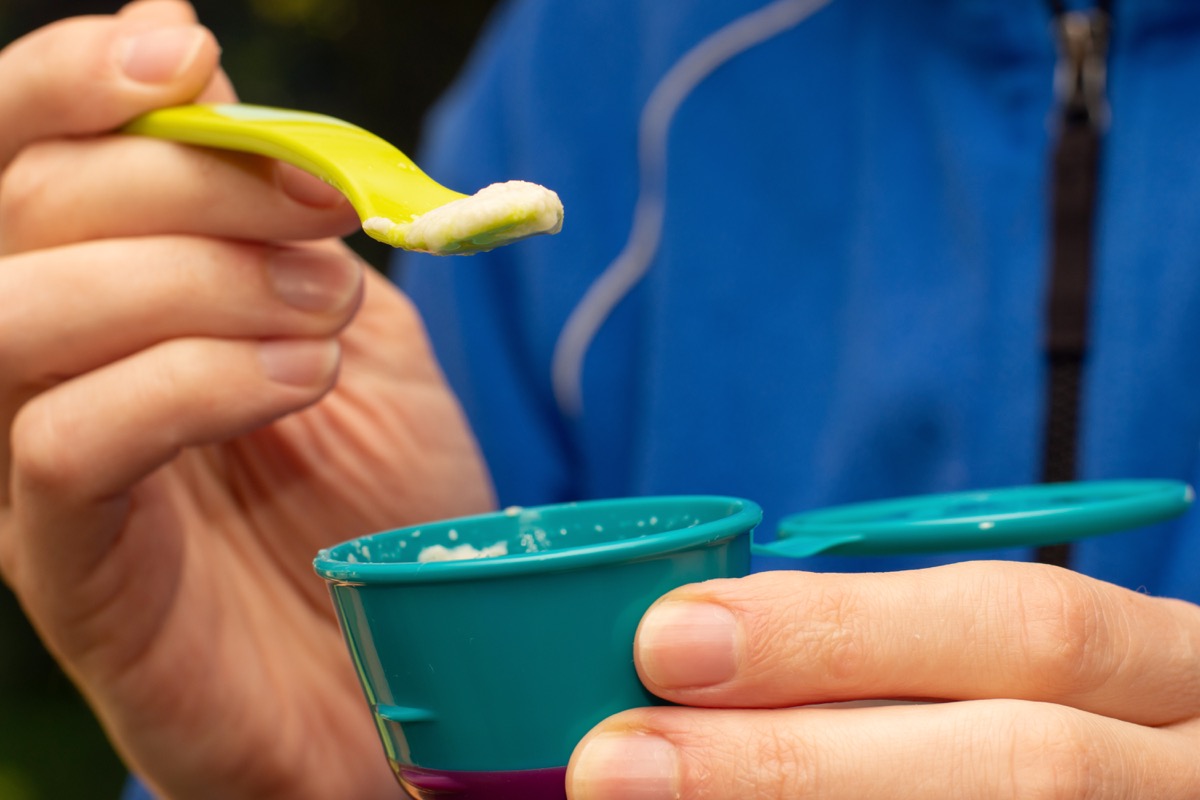This One Food Is Being Pulled From Shelves Permanently

Sticking to your grocery list may keep getting harder and harder. Between major recalls and massive product shortages, it’s a miracle if you’re able to find what you’re looking for in stores these days. Fortunately, recalls get overturned and shortages end, so most of your favorite products will find their way back to shelves eventually—but there is one food product that isn’t ever coming back. The U.S. Food and Drug Administration (FDA) just announced the voluntary recall of this item, adding that the company has decided to stop making it altogether. Read on to find out which grocery product is being pulled from shelves permanently.
RELATED: The FDA Is Warning You Not to Eat Food Made by This One Company.
Beech-Nut just issued a voluntary recall for baby rice cereal.

The FDA announced on June 8 that Beech-Nut has issued a voluntary recall for one specific lot of Beech-Nut Stage 1, Single Grain Rice Cereal, which is a baby rice cereal. The affected lot has an expiration date of May 1, 2022 and product codes 103470XXXX and 093470XXXX. Consumers with recalled products should discard them and contact the company for an exchange or refund.
Beech-Nut says the recall is the result of a routine sampling program by the State of Alaska finding samples from this lot of cereal that tested higher than the FDA-limit for naturally occurring, inorganic arsenic. “No illnesses related to these product codes have been reported to date, and no other rice cereal production dates or Beech-Nut products are affected by this recall,” the company said.
RELATED: The FDA Just Shut Down This Entire Bottled Water Company.
The company has decided to stop selling baby rice cereal altogether.

CNN reported that Beech-Nut will no longer sell baby rice cereal at all. The company still indicates that it is selling oatmeal and multigrain cereal for infants on its website, however. “Beech-Nut has also decided to exit the market for Beech-Nut branded Single Grain Rice Cereal,” the FDA explained in its announcement. “Beech-Nut is concerned about the ability to consistently obtain rice flour well-below the FDA guidance level and Beech-Nut specifications for naturally occurring inorganic arsenic.”
Inorganic arsenic found in food has been linked to several health concerns.

Arsenic is a natural element found in soil, water, and air. And according to the FDA, rice has the highest levels of inorganic arsenic out of any other food because of the way it grows and absorbs arsenic from the environment. However, inorganic arsenic can be toxic and long-term exposure to it from food can cause cancer and skin lesions, and has been associated with cardiovascular disease and diabetes, according to the World Health Organization (WHO). Not only that, but “early childhood exposure has been linked to negative impacts on cognitive development and increased deaths in young adults.”
RELATED: For more up-to-date information, sign up for our daily newsletter.
The FDA set an arsenic limit for baby rice cereal in 2020.

In 2020, the FDA set a limit on arsenic in infant rice cereal at no more than 100 parts per billion of arsenic. The agency had been working on arsenic limits for infant rice cereal since 2016, when a study published in JAMA Pediatrics found that concentrations of arsenic were twice as high in the urine of infants who ate white or brown rice compared to those who ate no rice. And the arsenic levels were highest in babies who ate rice cereal.
“The safety of infants and children is Beech-Nut’s top priority,” Jason Jacobs, vice president of food safety and quality for Beech-Nut, said in a statement.
RELATED: Target Just Banned the Purchase of This One Thing at All Its Stores.